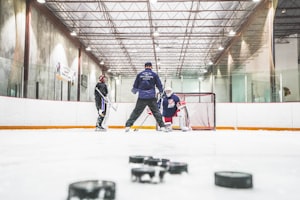The song that's come around on the guitar again is that the Leafs just mysteriously, amazingly and with no identifiable cause beyond personal integrity lose games to bad teams. Oh, and no other team does this. Just the Leafs.
There's one very obvious thing that can make that feel true when it might not be a real thing. Or it should be obvious. "Bad" is not a word with a fixed definition. So if what counts as "bad" changes, then outcomes can be frustrating when you've chosen to believe that good teams beat bad teams most of the time. A playoff contender, it's said, beats everyone every night, dominates the "bad" teams and makes you feel safe, even in January, that your team will win. Neither "good" nor "contender" have fixed definitions either, of course.
No one in Leafs fandom feels terribly safe right now, though.
As many before me have said, the days of the Canadiens or Red Wings dynasties are long over. And in today's world, any team can beat any other team any night. Which has always been true (except maybe for the Golden Seals) but it's more likely to actually happen these days. That's the entire point of parity – to make all 32 teams locally popular, to have them all sell tickets, to make the league as a whole see more revenue pour in, and to make television broadcasters much more interested in all the NHL games, not just a few of them.
But how much parity is there? Is this season unusual, or are vibes a really bad way to measure something. The amount of parity created by the salary cap, the league's revenue sharing and quest to make all the owners decently competent is disrupted by the incentive to tank. The very mild disincentive of the draft lottery system offsets the hunger for a superstar only a little.
A review of the last few years' incentives:
- 2018 - Dahlin, Svechnikov, Kotkaniemi
- 2019 - J. Hughes, Kakko, Dach
- 2020 - Lafrenière, Byfield, Stützle
- 2021 - Power, Beniers, McTavish
- 2022 - Slafkovsky, Nemec, Cooley
- 2023 - Bedard, Carlsson, Fantilli
- 2024 - Celebrini, Eiserman, Demidov (McKenzie's current ranking)
I think it's pretty obvious that the 2022-2023 season had a much higher incentive to be bad by design than most, if not all, of the rest of these seasons.
So now it's time to look at what the teams actually did on the ice in the years that led to those drafts. Restricting to five-on-five, this is the Corsi by season:
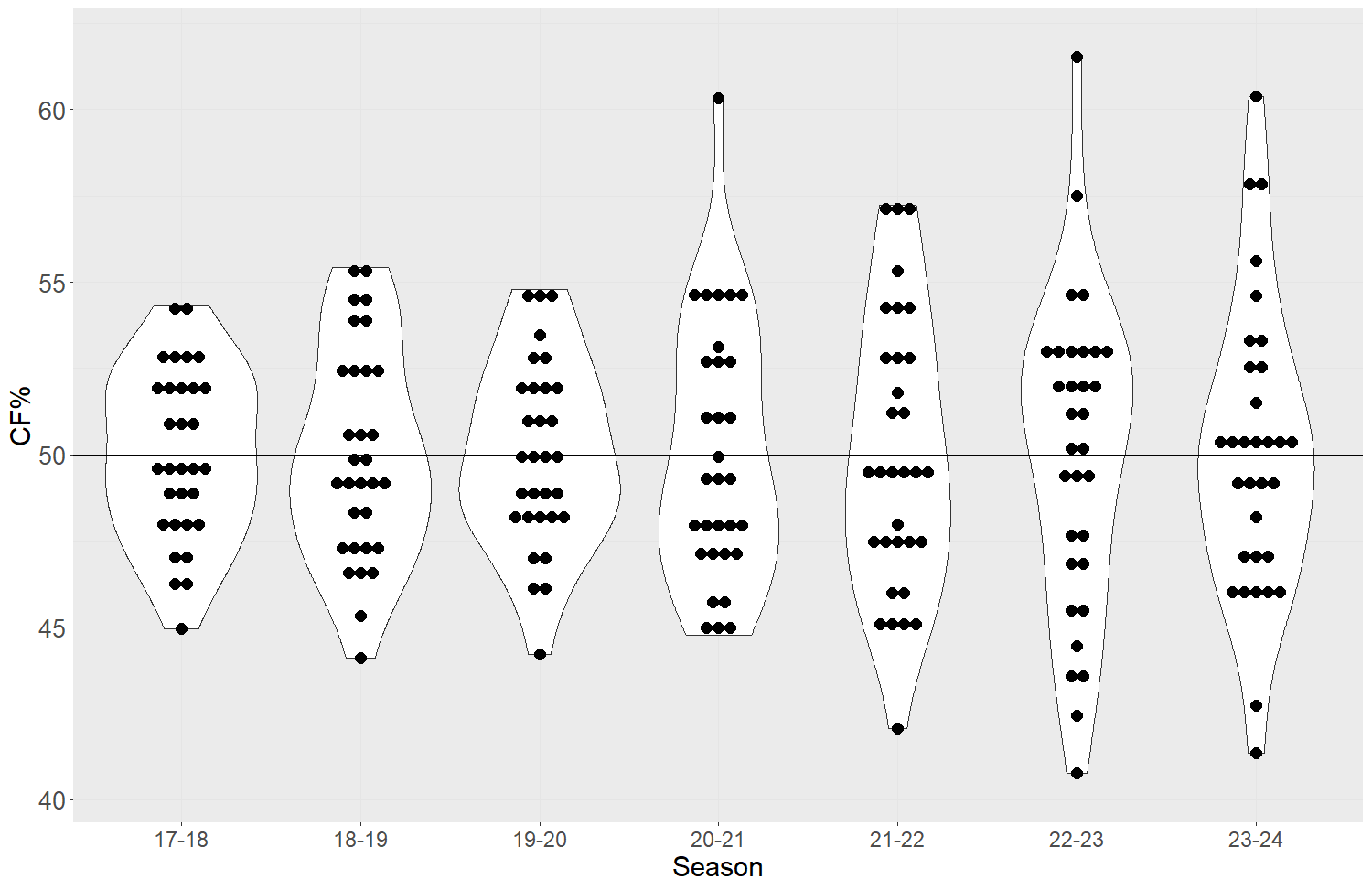
The Leafs are at 49% this season, one of the 11 teams on either side of the 50% line. If you go back to the earlier years, you see a tighter grouping of results, but fewer teams hanging right around the middle. This season is odd in that the muddy middle is staying really muddy well into the season, and very few teams have risen to the top.
Expected Goals is similar:
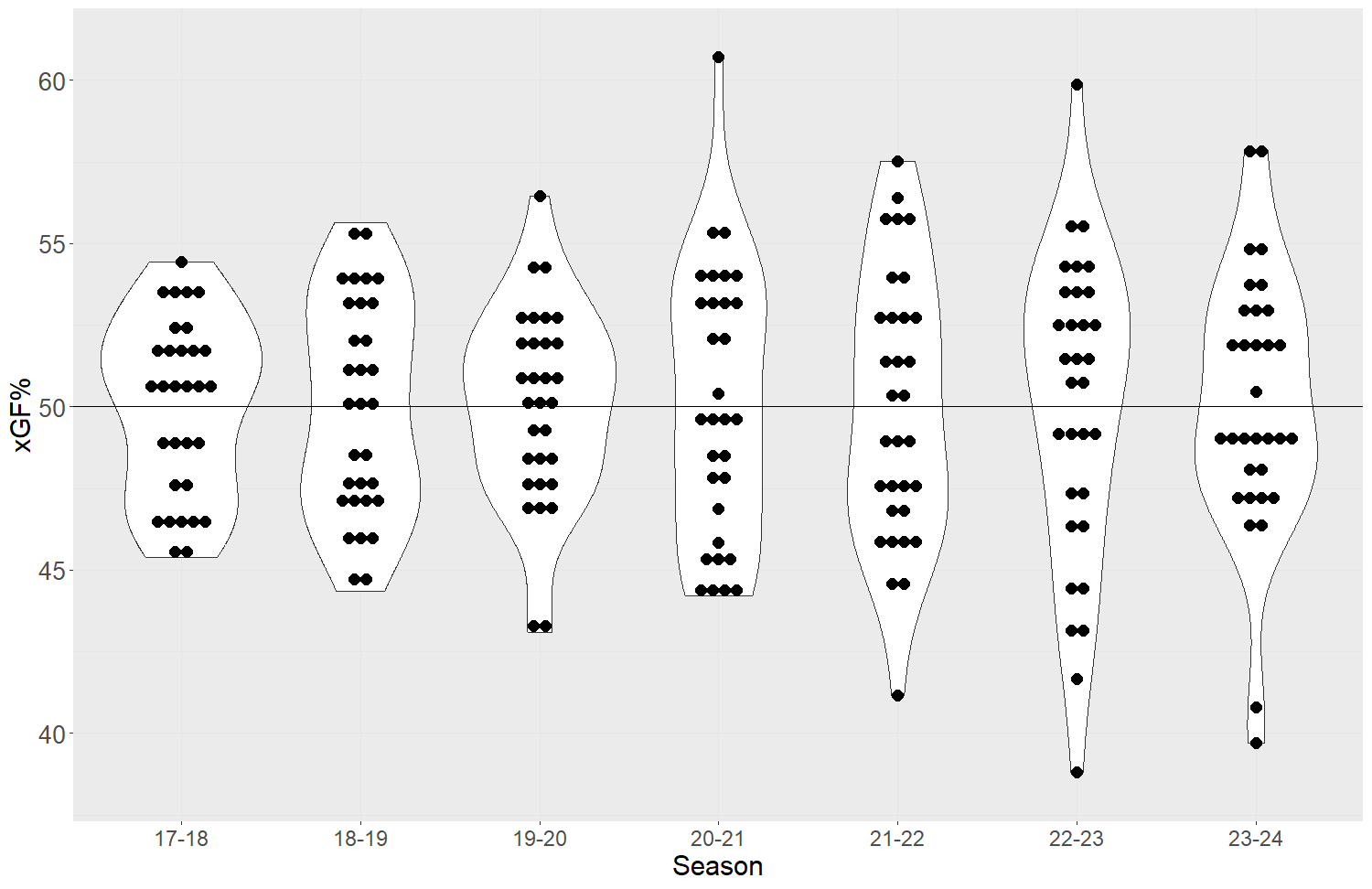
And a point to remember is that we could still see those extremes pull into the centre, although some past seasons show they aren't that extreme.
And if you don't believe in this xG or Corsi stuff, how about real goals scored at five-on-five:
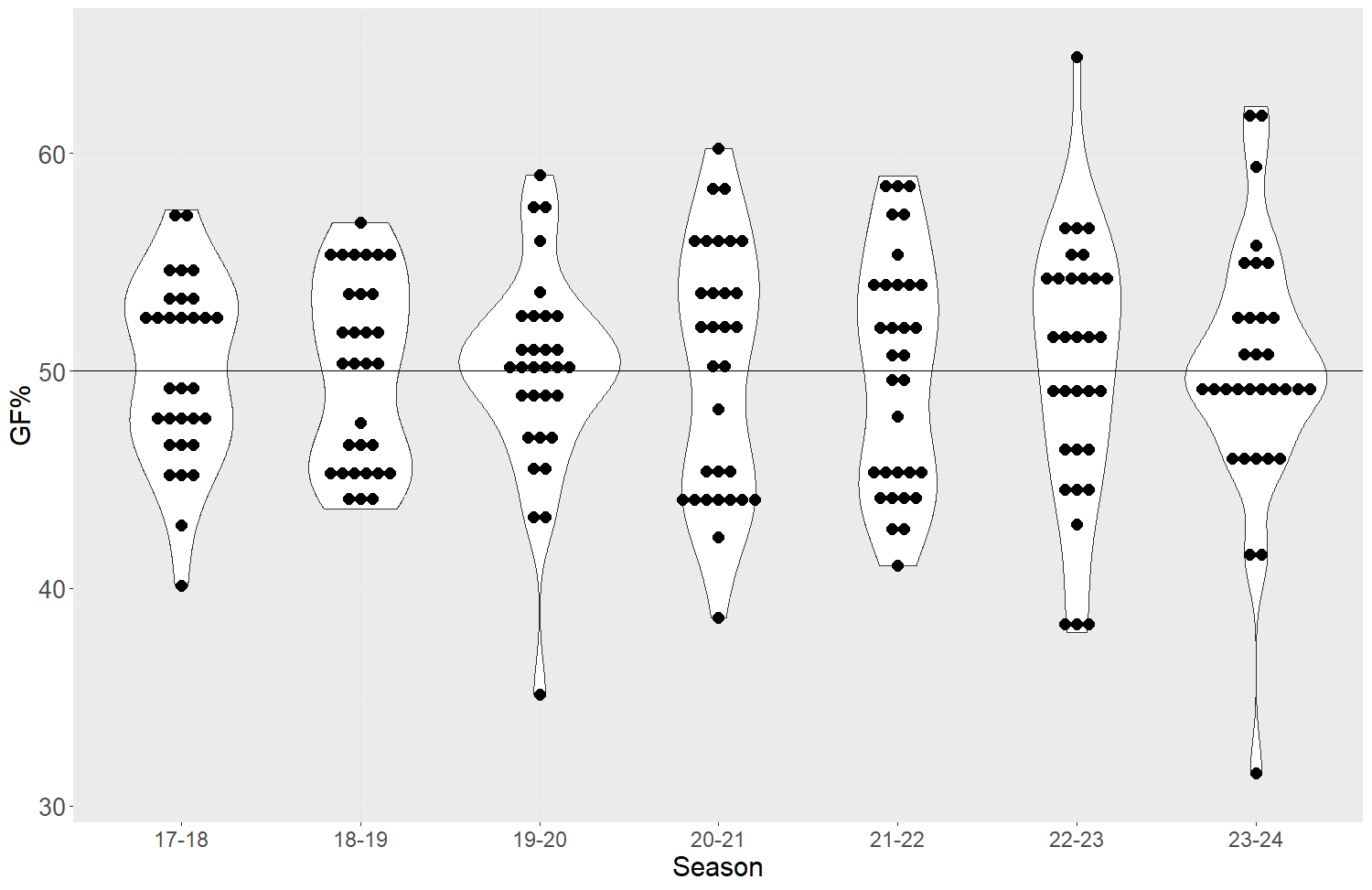
The Leafs are at 49% here as well. No one can feel dominant at five-on-five beyond the Canucks, the Jets and the Kings. Funny how they're all in the same conference as the Sharks down there at the bottom, coincidence, I'm sure.
There's a few other things going on besides just how many teams are likely to play the Leafs even at five-on-five. The Leafs have only played 11 games out of the Eastern Conference so far. Power play opportunities are very high, and they did not fall like they usually do after about three weeks of gameplay. Actual power play goals are up, and the distribution is nothing like the five-on-five situation:
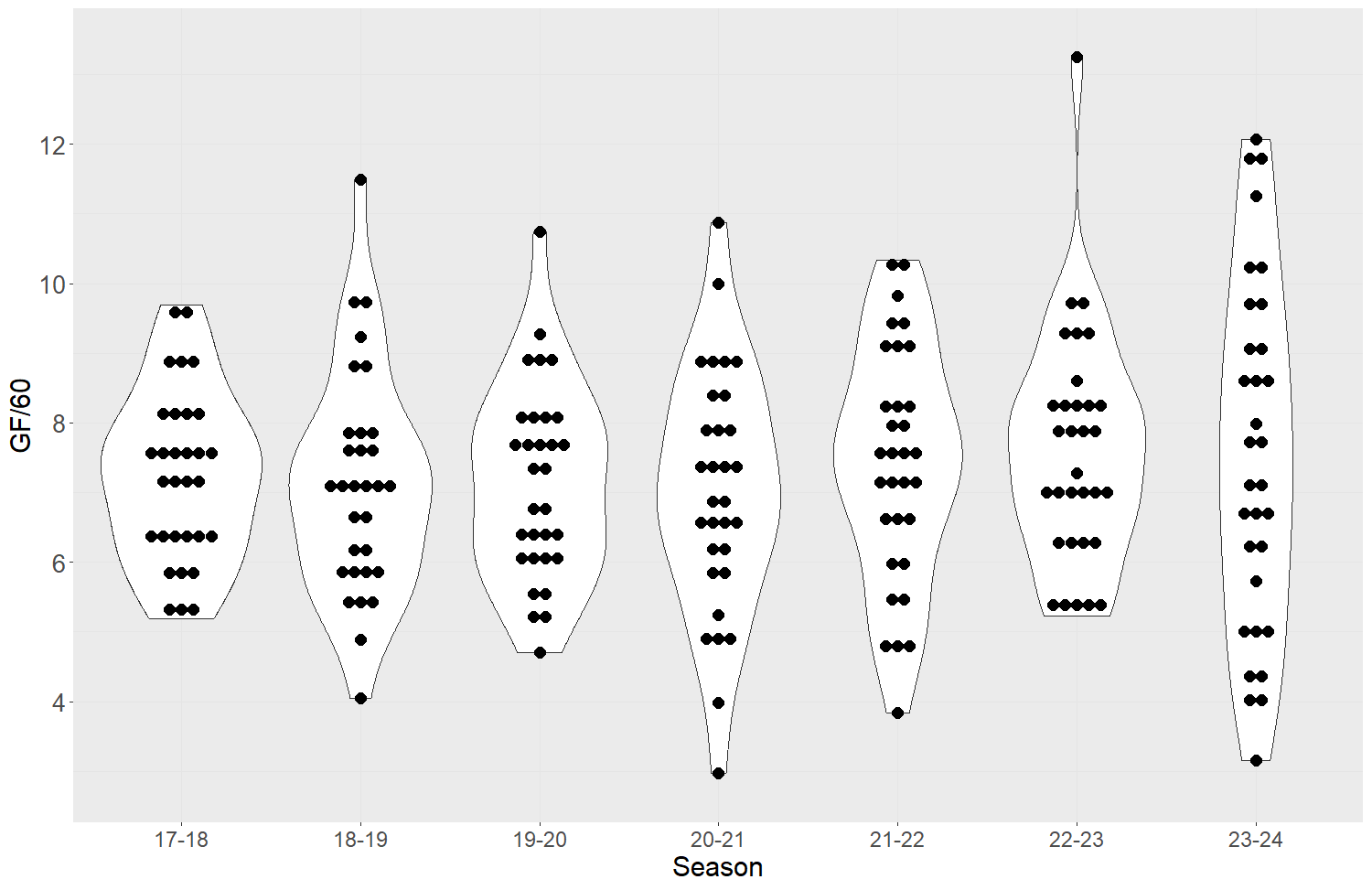
So we have a clump of teams getting 50-50 results at five-on-five and a long spread on the power play. Meaning there's a lot of "bad" teams who are exactly like the Leafs in terms of where and how much they can score.
Add in the random effects generators that are goalies, and you've got a top team getting trounced by the Senators or the Blue Jackets or trouncing them right back. You have teams that aren't really very good floating along, happy as Larry, on the strength of a shooting % spike. Or you've got coaches fired because the goalie can't stop a puck.
If the Leafs want to win more games against the "bad" teams, they need to be exceptionally good at five-on-five. And they aren't. They're not even unexceptionally good, they're just blah.
Your vibes are real, always. You feel what you feel. But they aren't data.



